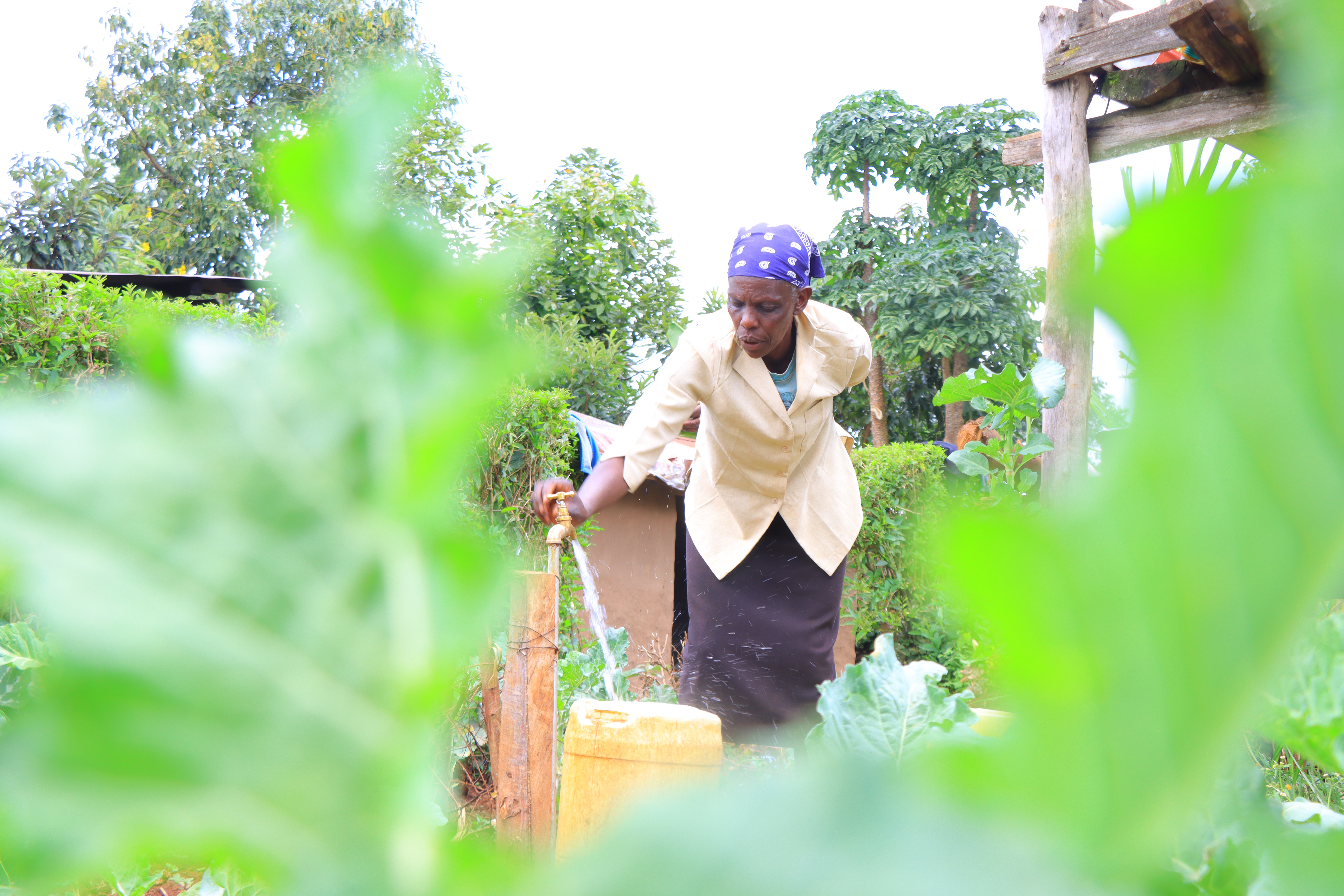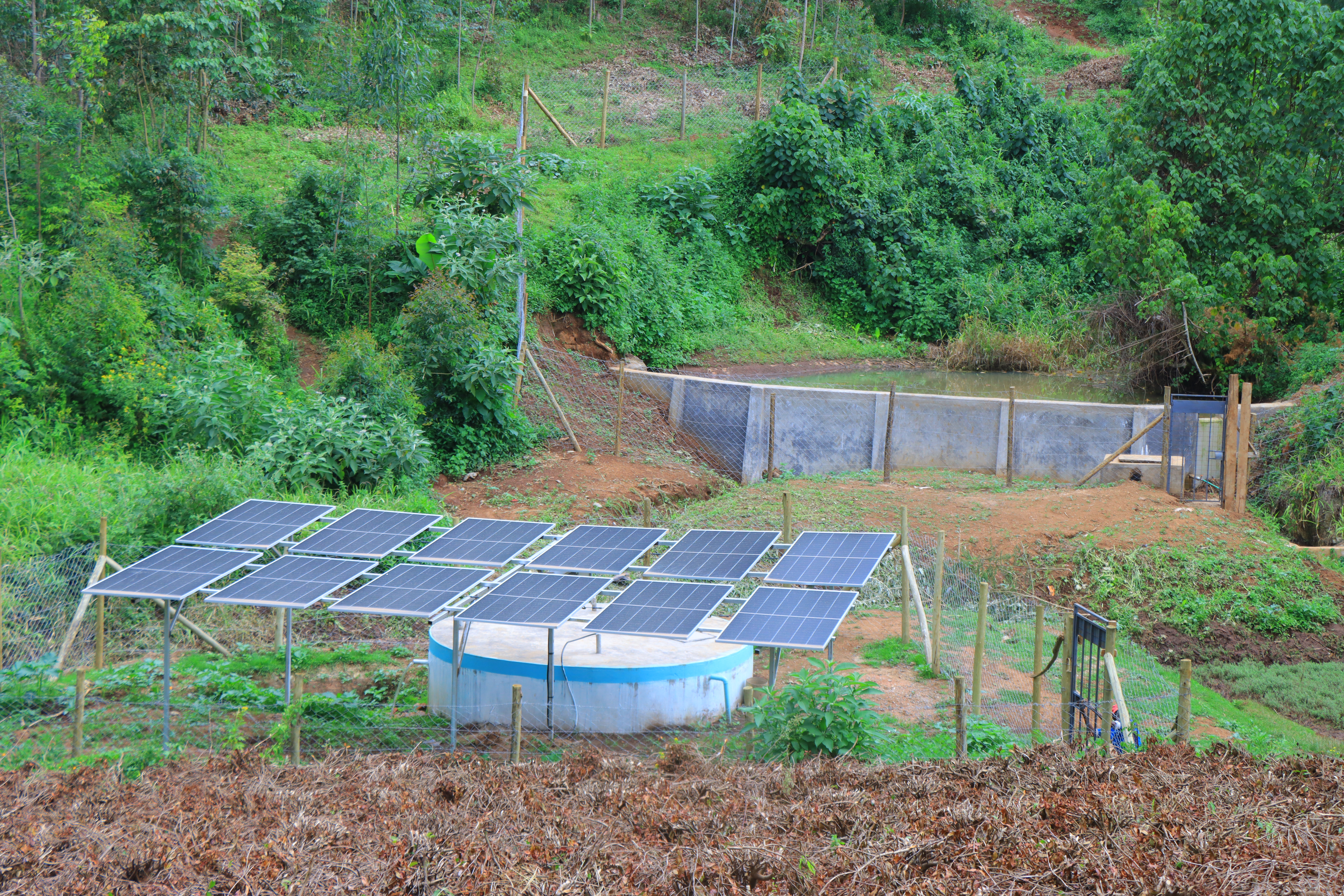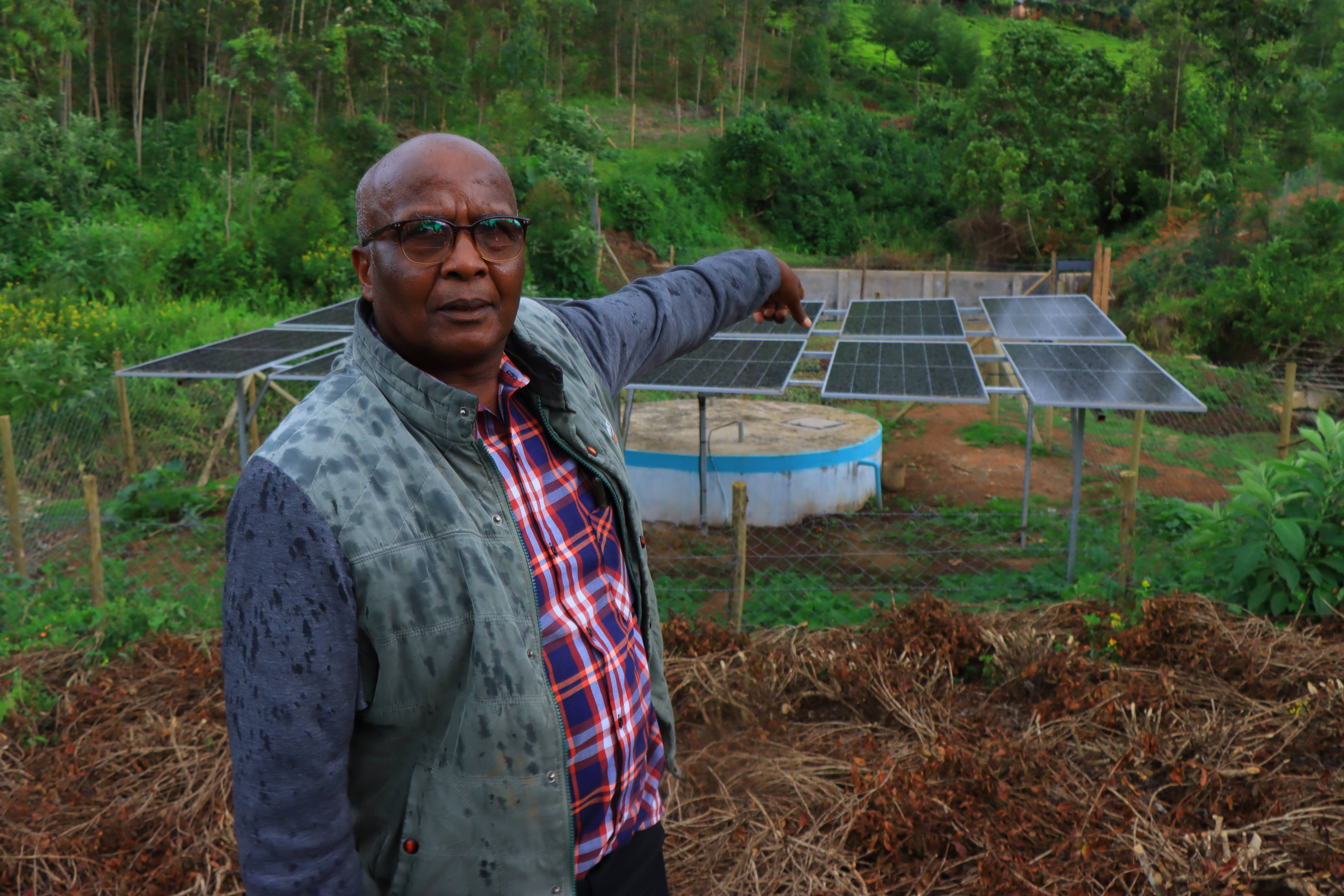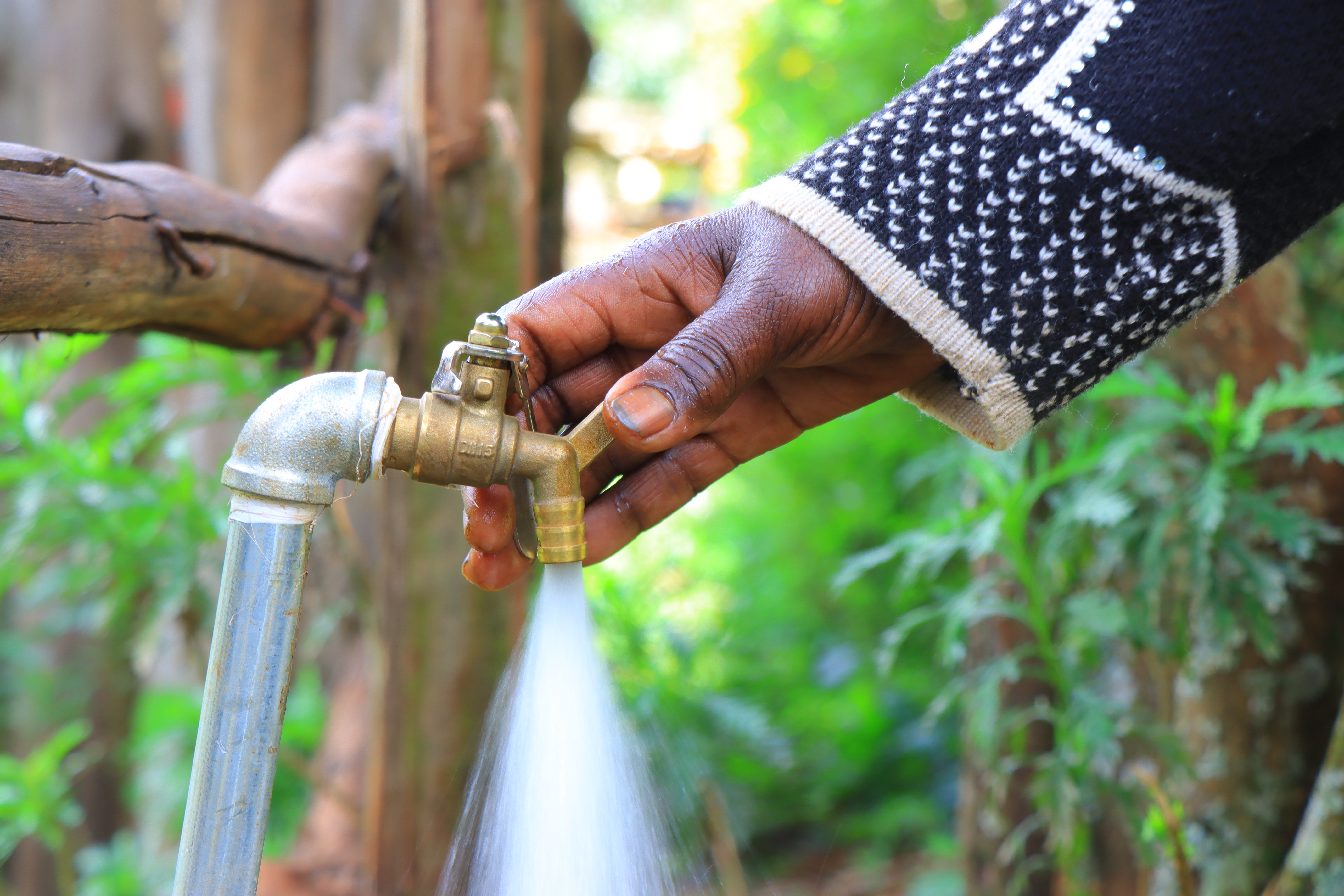Solar-powered Water Project Ends Decades of Thirst for Bomet Residents

Lucy Kosgei, a vegetable farmer, waters her crops using tap water. IMG/EMMANUEL RONO
By Kiptoo Kennedy
Published on September 8, 2025
For years, residents of Kecheiyat and Kinawet villages in Silibwet Township Ward, Bomet Central, were forced to walk up to three kilometers or pay hundreds of Kenya shillings daily to get water for domestic use.
However, the long struggle has ended with the launch of a new solar-powered water project under the World Bank-funded Programme FLLoCA (Financing Locally-Led Climate Action), in partnership with the county government of Bomet.
The project is a climate-smart approach to water resource management, utilizing solar energy to ensure water access and enhance community well-being.

A display of solar panels installed to pump water at Oinab Tibik Spring Water project. IMG/EMMANUEL RONO
The Oinab Tibik Spring Water project, which was launched in mid-May 2025, is already supplying water to over 400 households in the region.
Residents who once used donkeys and spent over Ksh. 400 a day to buy water for their homes, cows, and gardens, they now have readily available water from taps installed in their homes.
Alice Bor of Kecheyat village is one of the beneficiaries. According to her, the initiative has guaranteed them access to clean water and made their lives easier.
She used to spend up to Ksh. 400 daily on water vendors, who would make more than three trips with donkeys to a stream far from her home to meet her household's needs.
“This initiative came at a perfect time,” she said. “For years, I was spending a lot on water for general household chores. The money I used ranged from Ksh. 400 to Ksh. 500, but now this project has given us access to water in our homes. We can open the taps, and they’ve never run dry.”
Mrs. Bor is one of 400 households benefiting from the project, which is strategically located to supply water through gravity—a feature locals call a sustainable solution to their long-term suffering.
Lucy Kosgei, a vegetable farmer, could not hide her joy as she watered her kales using the new tap water.
“My daughters and I used to travel for kilometers in search of water to water this farm,” she said.
Mrs. Kosgei praised the program and the county government, explaining that due to their low living standards, they couldn't afford to buy water and were forced to carry 20-liter jerry cans on their backs for long distances.
“I never used to buy water; my children and I would walk to the far end of the village to fetch it,” she said. “But this project, bringing tap water to my compound, has made us say goodbye to years of suffering. Now, we can water our farm with ease.”

Joseph Korir, Chairman of the Oinab Tibik Stream Water Project, points at the ongoing project. IMG/EMMANUEL RONO
Joseph Korir, Chairman of the Oinab Tibik Stream Water committee, says the initiative is a relief for residents who were always forced to walk long distances in search of water. According to him, they are aiming to supply water to 400 households and are committed to serving the community indefinitely.
“We aim to supply 400 households with this project,” Korir said. “We thank the government and this program and hope to carry on this project without stopping.”
Korir added that the project has also made it easier for young people in the area to set up and manage fish ponds, creating employment opportunities. “By using this simple solar system to supply water, our youth can now construct fish ponds and become active fish farmers, ensuring they get self-employment,” he added.
Bomet Governor Prof. Hillary Barchok previously stated that the project not only helps alleviate water shortages but also aids in environmental protection.

Clean water flows from a tap installed under the Oinab Tibik Stream Project. IMG/EMMANUEL RONO
He said the county expects locals to contribute to climate mitigation through agricultural activities that advance environmental protection.
Comments Below